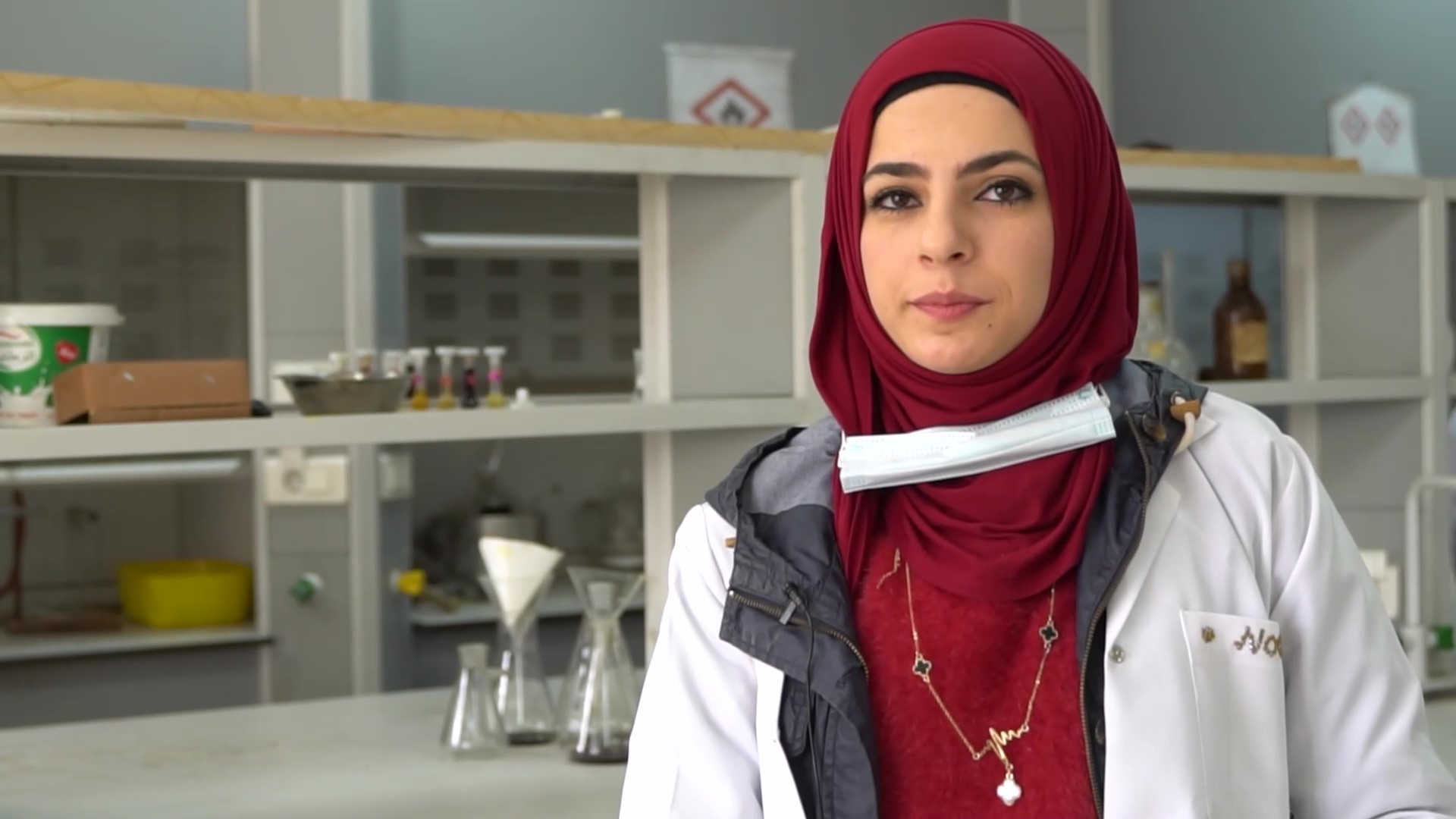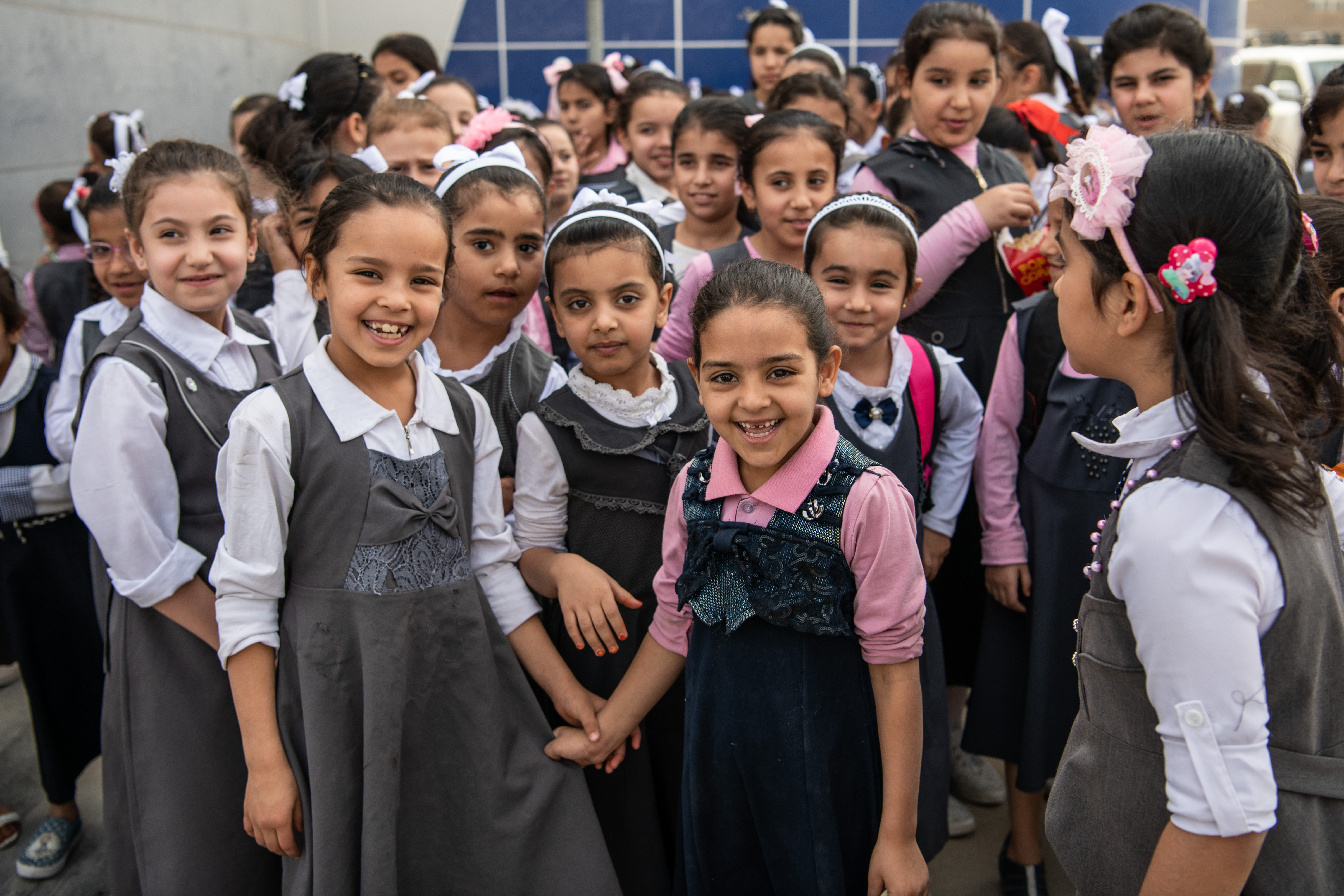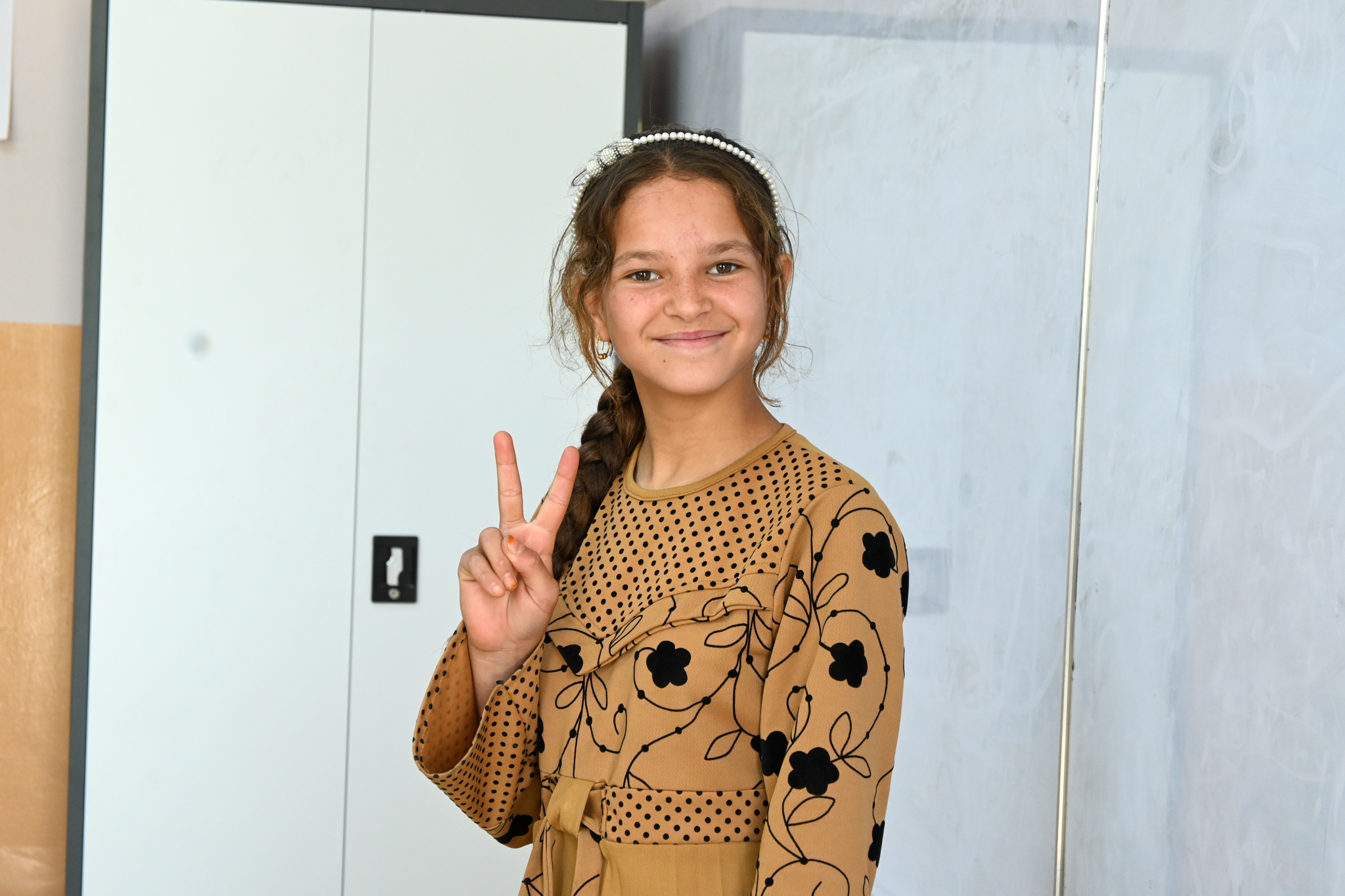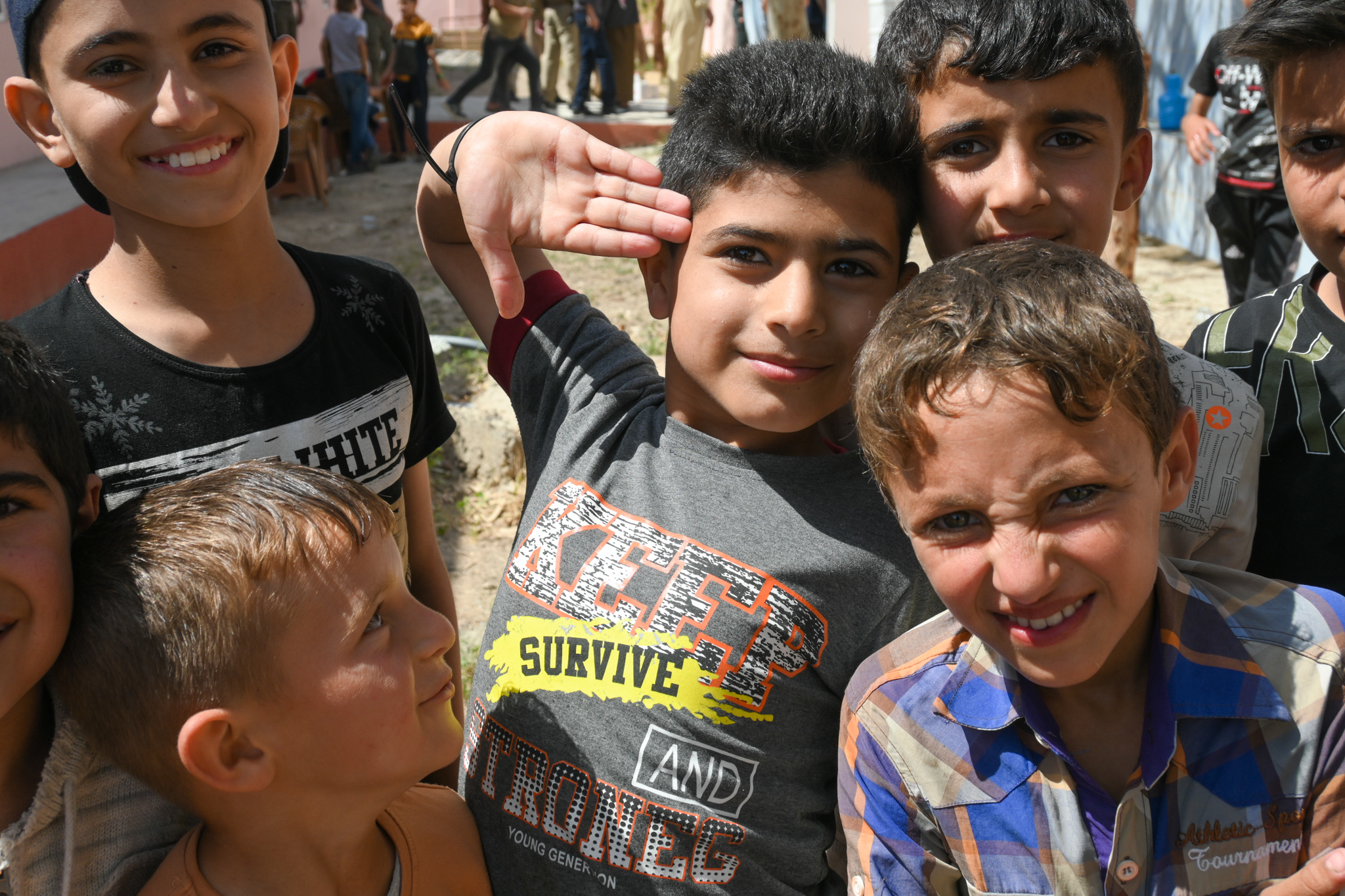Educators and students across Iraq share their views on the importance of investing in quality education.
Quality Education: UNDP Iraq’s commitment to the Sustainable Development Goals in Iraq
January 24, 2023
Students during an Arabic language class at the Um Kalthum Primary School in Falluja, rehabilitated by the Funding Facility for Stabilization. Photo: UNDP Iraq
An estimated 3.2 million children* in Iraq are out of school. Decades of conflict and under-investment have hampered what used to be one of the most robust education systems in the region.
The United Nations General Assembly proclaimed 24 January as the International Day of Education, celebrating the role of education in peace and development. Without quality education and corresponding livelihood opportunities for all, developing countries will not succeed in breaking the cycle of poverty that leaves millions of children, youth, and adults behind.
UNDP spoke to Iraqi educators and students on the importance of education in building a path to a promising future.

Noor in the Department of Science at Mosul University, rehabilitated by UNDP’s Funding Facility for Stabilization. Photo: UNDP Iraq
Education provides stability
“Higher education opens new avenues and provides stability for women and girls, be it through career development or entrepreneurship. I am using education to build my expertise and enter the labor market strong,” Noor Moyassar Dahham, 22, is a fourth-year student at the Department of Science, Mosul University.
Receiving quality education increases young people’s chances for better career opportunities, opens up new possibilities, and provides stability in life. “I encourage Iraqi women to never give up. We have experienced so much trauma together. Let us now pick up and build back. I hope to see more women and girls enroll in higher and tertiary education. I hope to see more families create an enabling environment for them to do so. After, if each of us is stable, it will contribute to Iraq’s stability,” she adds. The Department of Science at Mosul University was equipped and rehabilitated by UNDP’s Funding Facility for Stabilization.

Girls play in the schoolyard at Hatheen Primary School for Girls in Haditha, which has been rehabilitated by UNDP’s Funding Facility for Stabilization. Photo: UNDP Iraq
Education allows for self-reliance
“Education is the path to self-development. It unlocks opportunities and reduces inequalities. It is the cornerstone of improving our society and the main driver of sustainable development,” says Sawsan Mohammed Bakr, 55 years old, teacher at the Institute of Fine Arts in Kirkuk.
Sawsan strongly believes that receiving quality education allows young Iraqis to achieve independence. “Education helps increase our ability to think and act rationally,” she adds. She also stresses that it allows youth to be financially independent and make their own choices.
Sawsan wears many hats. She is also the coordinator of the Kirkuk Women for Peace Group supported by UNDP’s Social Cohesion Programme.

A class in session at the Institute of Fine Arts in Kirkuk, Iraq. Photo: UNDP Iraq
Education creates economic opportunities
“As long as I can remember, I have loved the sciences and always wanted to be in this field. I encourage my students to grab every opportunity that comes their way to build their careers, whether it is within the private, public or education sector,” says Dr. Dhikra Ali, 54, Head of the Biochemistry Department at Mosul University.
Dhikra reiterates that a well-educated society is key to economic growth. “We need people to continue to learn and research to constantly stay innovative and relevant. I wish the best for my students, especially the women in my class. I hope education encourages young women to start businesses and create more economic opportunities for others.”

Shahad from Ain Al Hussan Primary school, Sinjar, which was rehabilitated by the Funding Facility for Stabilization. Photo: UNDP Iraq
Education is needed for equality
For Shahad, 10, she will be the first girl from her family to receive formal education. She is currently in grade 4 at the Ain Al Hussan Primary school in Sinjar. “My school was destroyed during the ISIL conflict. I thought I would never go back to school. But today, I am happy to be reunited with my friends. I am proud to be the first girl in my family to attend school. I want to ensure I study and become a big person one day. Someone who can serve my family and people in my village.”

Children during recess at the Ain Al Hussan Primary school in Sinjar, which was rebuilt by the Funding Facility for Stabilization. Photo: UNDP Iraq
Education ensures a better future
Ruqia Mohammed Oyed, 27, a primary school teacher in Anbar, enjoys teaching, storytelling, and imparting knowledge in a way that can inspire her students to dream big. “Education provides the basis for a successful future. It is the best route to achieve one’s goals,” she says.
After school hours, Ruqia is an active member of the Anbar Women for Peace Group, that is supported by UNDP’s Social Cohesion Programme. She wants to use education to motivate her students to dream big for Iraq’s future. “Development is a seed whose roots start from a solid educational foundation, which ensures independent thought towards specific goals.”
About:
UNDP is the leading United Nations organization fighting to end the injustice of poverty, inequality, and climate change. Our work in Iraq includes rebuilding and upgrading education facilities damaged during conflict with ISIL ensuring equal and inclusive access to affordable and quality technical, vocational, and tertiary education, is key to sustainable development. Read more about what we do here.
*Source: United Nations International Children's Emergency Fund (UNICEF), The United Nations Educational, Scientific and Cultural Organization (UNESCO).

 Locations
Locations